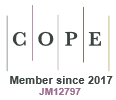Evaluation of fire danger rating indexes using logistic regression and percentile analysis
Patricia L. Andrews, Don O. Loftsgaarden and
Larry S. Bradshaw
International Journal of Wildland Fire
12(2) 213 - 226
Published: 27 June 2003
Abstract
Methods are presented for analysing the relationship between fire danger rating indexes and fire activity as a means of evaluating the performance of fire danger rating systems. Percentile analysis is used to examine the data itself; logistic regression provides a means for statistical analysis. Ranking of selected items indicates indexes that deserve further assessment using subjective considerations. Methods rely on generally available data: the fire danger index for every day in the fire season, fire discovery date, and final fire size. For logistic regression analysis, the independent variable is the index, and dependent variables are fire-day, large-fire-day, and multiple-fire-day. Data analysis methods have been incorporated into the FireFamily Plus computer program for easy application. Potential uses of the analysis include choosing the most appropriate fire danger index and fuel model for an area, evaluating proposed changes to a fire danger rating system, and assessing the performance of a system in a location other than that for which it was designed. As a demonstration, this technique was applied to evaluation of several indexes and fuel models of the U.S. National Fire Danger Rating System on the Tonto National Forest in Arizona, USA, using fire and weather data for 1974–2001.Keywords: fire occurrence; logistic regression; fuel models; Arizona.
https://doi.org/10.1071/WF02059
© IAWF 2003


